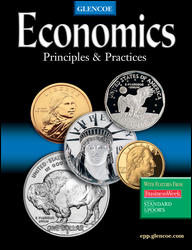1 A) algebraic, geometric B) geometric, constant C) constant, progressive D) constant, algebraic 2 A) substance B) extinction C) subsistence D) equality 3 A) oil B) natural gas C) coal D) nuclear energy 4 A) biomass B) nuclear power C) solar energy D) hydroelectric power 5 A) drove the price of oil up, which eventually stimulated additional oil production B) caused a glut of oil in the same year C) led to a state of subsistence in the oil-consuming nations D) discouraged the search for and production of more oil 6 A) people and firms have an economic incentive to pollute B) people and firms are lazy C) government regulations against pollution are not strong enough D) population is growing, and pollution is a by-product of economic growth 7 A) gives firms a low-cost way to pollute B) is an ineffective way to control pollution C) forces firms to either clean up their own pollution or pay for costly permits D) allows firms to reduce their cost of production by lowering pollution costs 8 A) discourages activities that generate pollution B) can now control external events like potential oil slicks C) benefits everyone equally D) gradually adjusts to change 9 A) similar to the laissez-faire capitalism of the past B) evolutionary in that it has adjusted incrementally to the demands on it C) similar to the capitalism of the 1930s that had little room for the elderly, ill, or incapacitated D) very similar to the socialism of the 1930s





